If I have one array for example [1 4 3 7 4 9 5 1 5 6 3].
How to delete repetitive numbers and give in the output array like this [1 4 3 7 9 5 6]?
If I have one array for example [1 4 3 7 4 9 5 1 5 6 3].
How to delete repetitive numbers and give in the output array like this [1 4 3 7 9 5 6]?
You can call your array in a HashSet<int> constructor. HashSet is a kind of optimized collection. It's constructor eliminates the non-unique elements.
Here an example in LINQPad;
var array = new[]{1, 4, 3, 7, 4, 9, 5, 1, 5, 6, 3};
HashSet<int> h = new HashSet<int>(array);
h.ToArray().Dump();
Here a result;

What about this :
int[] arr = { 1, 4, 3, 7, 4, 9, 5, 1, 5, 6, 3 };
foreach (int item in arr.Distinct())
{
Console.WriteLine(item);
}
and you can also assign in a array like this:
int[] unique = arr.Distinct().ToArray();
Couple of suggestions found searching:
1.)
int[] s = { 1, 2, 3, 3, 4};
int[] q = s.Distinct().ToArray();
2.) The easiest solution will be to simply sort the array (takes O(n log n) with standard implementation if you may use them. otherwise consider making an easy randomized quicksort (code is even on wikipedia)).
Afterwards scan it for one additional time. During that scan simple eliminate consecutive identical elements.
If you want to do it in O(n), you can also use a HashSet with elements you have already seen. Just iterate once over your array, for each element check if it is in your HashSet.
If it isn't in there, add it. If it is in there, remove it from the array.
Note, that this will take some additional memory and the hashing will have a constant factor that contributes to your runtime. Althought the time complexity is better, the practical runtime will only be onyl be faster once you exceed a certain array size
If you, for whatever reason, do not want to use Linq:
List<int> distinctList = new List<int>();
foreach (var num in numberList)
{
if (!distinctList.Contains(num))
{
distinctList.Add(num);
}
}